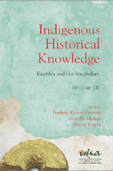Arvind Gupta
Publication
Georgian Crisis will have adverse impact on Russia’s relations with the West
Russian military operations in Georgia and the finalisation of agreement between the US and Poland on the stationing of missile interceptors in Poland are two developments that are likely to have far-reaching but adverse impact on Russia’s relations with the West.
- Published: August 25, 2008
Should India Engage with NATO?
On the face of it, India and NATO are poles apart. NATO is a military alliance. India is a non-aligned country with an independent foreign policy. Any engagement between India and NATO is, therefore, problematic.
- Published: July 08, 2008
Does India Have a Neighbourhood Policy?
The article argues that India does not have a well-defined neighbourhood policy. It makes a historical survey of the approaches of different Indian leaders to the neighbourhood and examines the reasons for the prevailing negative perceptions about India in the region. It argues that these negative perceptions have come about because India has largely adopted an ad hoc and bilateral approach vis-à-vis its neighbours and has allowed its policy to be guided by an overarching concern for security. In recent years, India's approach has changed considerably.
- Published:
Indigenous Historical Knowledge: Kautilya and His Vocabulary (Volume III)
- Publisher: Pentagon Press
This book is the third in a series of three volumes on "Kautilya and His Vocabulary" as a part of the "Indigenous Historical Knowledge" project undertaken by the Institute for Defence Studies and Analyses (IDSA), New Delhi. The edited volumes contain select papers presented in a series of workshops, national and international seminars organised by the Institute. The project is an attempt to trace, look into, analyse and relate with the indigenous strategic thinking in India. These volumes aim at initiating the study, internalisation, spread and consolidation of Kautilya's Arthashastra in the strategic domain. The four focus themes in the three volumes are foreign policy, intelligence, war and internal security as they relate to contemporary times.
- ISBN 978-81-8274-909-2,
- Price: ?. 795
- E-copy available
- Published: 2016






